Gartner’s AI TRiSM Market Guide Validates the Urgency of AI Agent Security
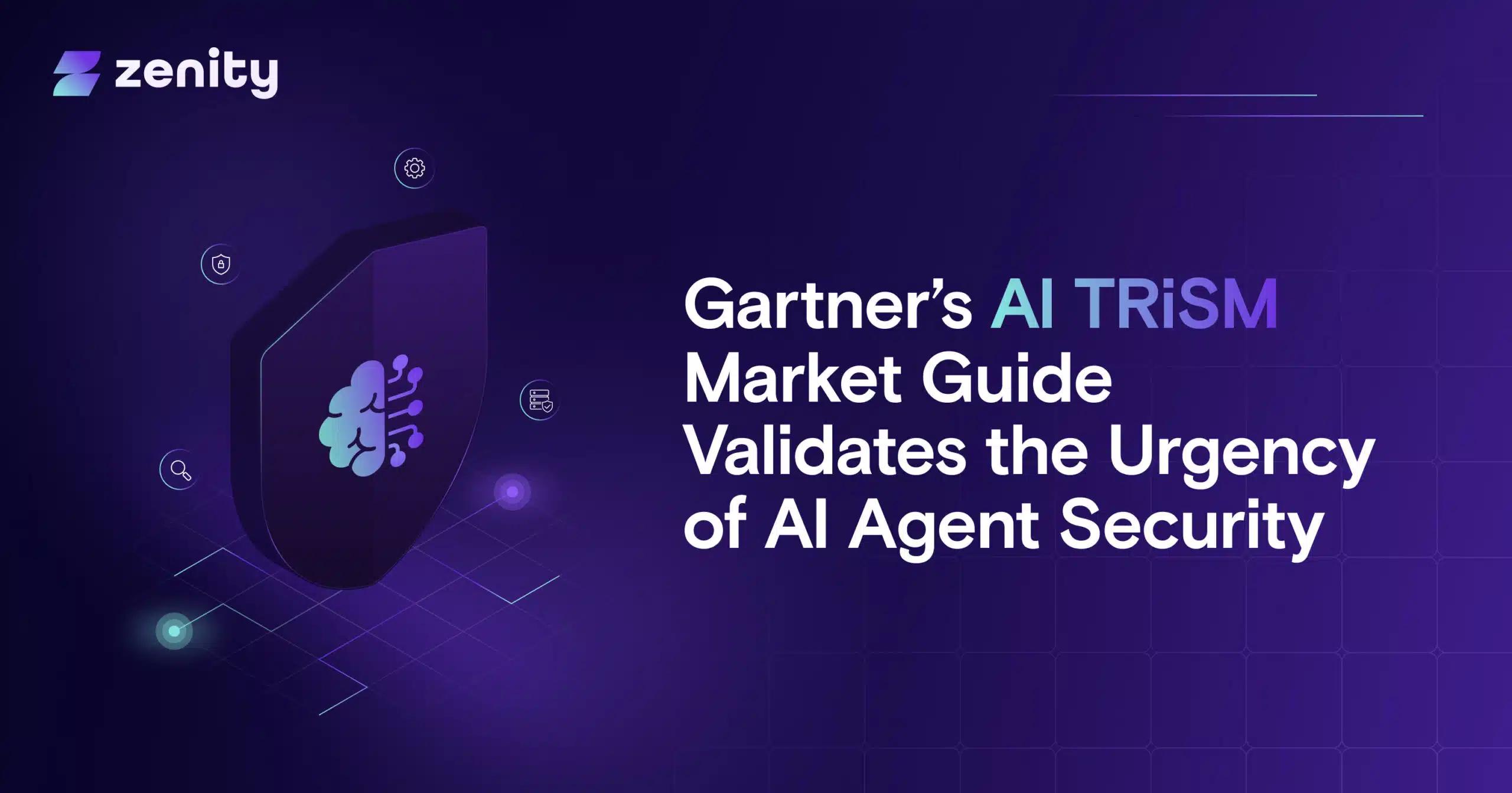
AI Agents are not just another tech trend; they are fundamentally reshaping how enterprises operate. These autonomous systems are deeply embedded into workflows, making real-time decisions, executing tasks, and integrating across an organization’s most critical systems. With this shift comes an undeniable reality: enterprises are handing over operational control to AI-driven entities without the necessary governance and security frameworks in place.
This is not just a security challenge—it’s an enterprise-wide AI governance issue that must be addressed before AI Agents evolve beyond our ability to control them.
That’s why Zenity is proud to be recognized in Gartner’s AI Trust, Risk and Security Management (AI TRiSM) Market Guide—a landmark report that defines how enterprises must approach AI security, governance, and risk management. This inclusion validates what we’ve enabled for F500 customers and continued to pioneer for years: the industry’s first platform dedicated to securing AI Agents from buildtime to runtime.
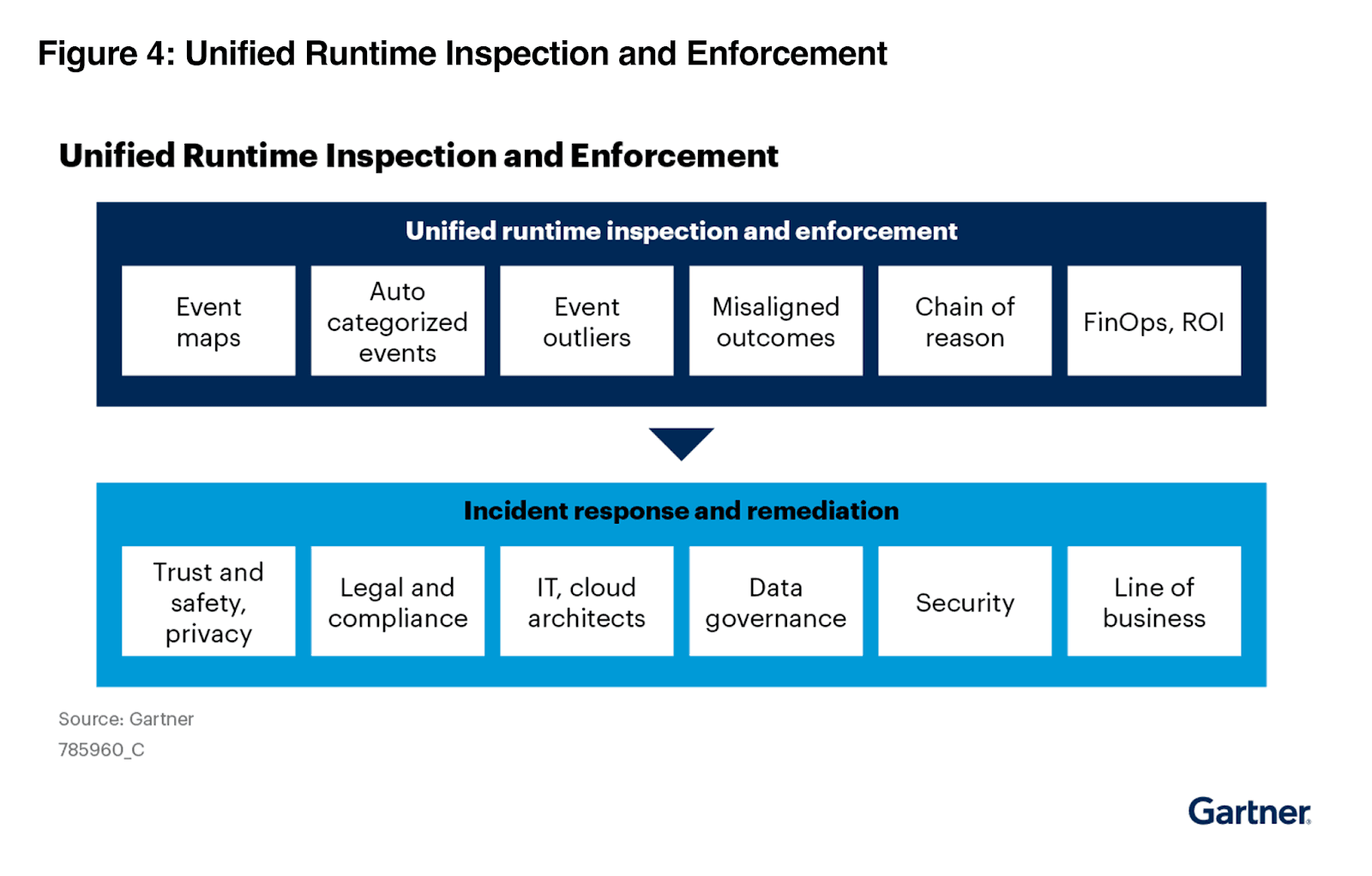
AI Agents: The Newest Insiders with No Security Model
For decades, enterprises have built insider threat programs to manage risks posed by human employees. Background checks, role-based access control, privilege management, and real-time monitoring have been core pillars of these programs. Yet, as AI Agents gain autonomy—ingesting data, initiating actions, and making contextual decisions—many organizations have no equivalent security or governance model in place to manage these non-human actors.
Think about it: AI Agents are being granted access to sensitive financial data, customer records, proprietary business logic, and decision-making processes—without any formal framework for enforcing governance policies, monitoring actions, or mitigating risks. And with many enterprises starting by focusing exlcusively on inputs and outputs, they fail to visualize all the ‘behind the scenes’ activity of AI Agents that can easily result in data leakage, prompt injection, and agent jailbreaks.
The problem is that most organizations are only just now realizing that traditional security frameworks don’t account for AI Agents at all.
This is precisely why Gartner’s AI TRiSM Market Guide is such a critical moment for the industry. It highlights the growing demand for AI-specific security and governance solutions, while confirming that existing security frameworks are not enough to protect AI Agents from misuse, exploitation, and operational failures.
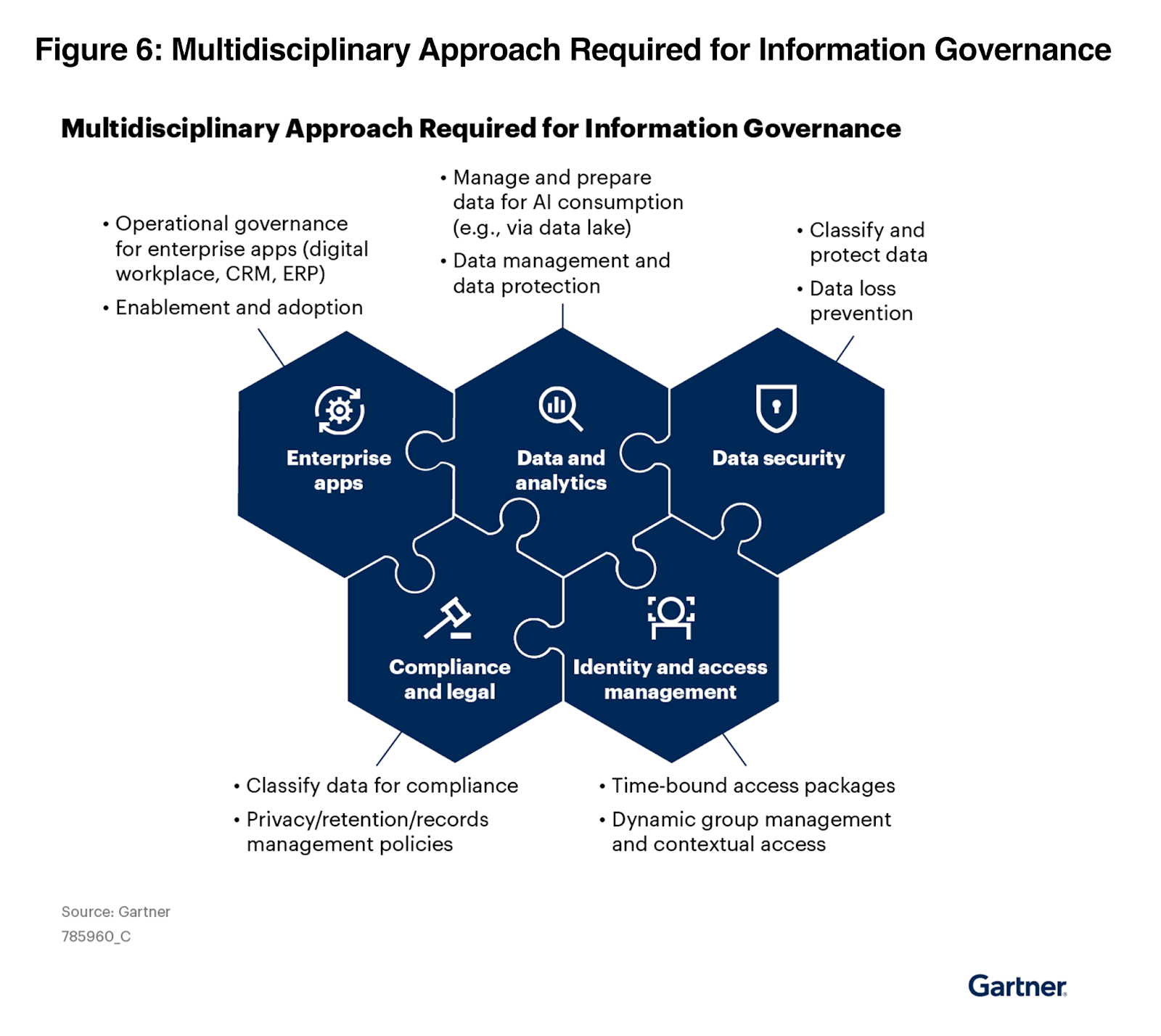
Zenity’s Leadership in AI Agent Security and Governance
Being included in Gartner’s AI TRiSM Market Guide reinforces our leadership in AI Agent security with our unique approach to go beyond inputs and outputs to understand what each AI Agent is designed to do, how it’s used, and critically, how to prevent and respond to anomalous or malicious activity. It validates the work we’ve done in helping enterprises establish the right controls and safeguards for AI-driven decision-making.
Zenity enables enterprises to:
- Establish AI Agent Security Posture Management (AISPM): Gaining full visibility into all AI-driven actions and enforcing governance and security policies across agent workflows.
- Detect and Respond to AI Agent Risks in Real Time: Addressing issues like prompt injection, agent jailbreaks, unauthorized data access, intent-breaking attacks, and operational failures.
- Enforce Least Privilege and Secure AI Agent Authentication: Ensuring AI Agents don’t have unrestricted access to sensitive business data or the ability to act autonomously without proper oversight.
- Mitigate Data Leakage and Compliance Risks: Preventing AI Agents from unintentionally exposing or exfiltrating sensitive corporate information.
These are the exact capabilities Gartner identifies as essential for AI governance and security. Zenity doesn’t just align with these principles—we are actively shaping them, helping enterprises navigate the complexities of AI adoption while minimizing security risks.
What’s Next? Secure AI Agents Before Security Gaps Turn into Enterprise-Wide Risks
AI Agents are taking enterprises by storm, with business users of all technical backgrounds creating and embedding agents into daily workflows and business processes. But without proactive governance and security measures, agents can quickly become high-value targets for exploitation, or worse—trusted decision-makers operating without oversight.
The reality is that most organizations don’t even know where to start. Traditional security frameworks weren’t built to handle AI Agents. Risk models don’t account for AI-driven decision-making that is, by design, increasingly human. Security teams lack visibility into how AI Agents access and process data. And compliance teams are struggling to apply existing regulations to a technology that is moving faster than governance policies can keep up.
That’s why Gartner’s AI TRiSM Market Guide is so significant—it lays out a framework for enterprises to follow, and Zenity is at the forefront of helping organizations put those principles into action.
This is why AI Agent security can’t wait. Enterprises need to establish dedicated governance models, detection capabilities, and real-time enforcement mechanisms before AI Agents become an unmanageable risk.
Here’s how you can take action today:
- Join Zenity’s AI Agents Security Summit – Connect with security and governance leaders tackling AI Agent risks head-on. Learn best practices, hear from experts, and get insights into securing AI-driven workflows. Register Now
- Get a Free AI Agent Risk Assessment – Evaluate your AI Agent governance posture with Zenity’s Security Assessment Hub. Discover potential risks, analyze your AI exposure, and get actionable recommendations. Start Your Assessment
- Read Gartner’s AI TRiSM Market Guide – Gain a deeper understanding of the evolving AI Agent security landscape and how enterprises must adapt. Download the Report
Innovation moves fast, but governance, security, and risk management cannot be an afterthought. Organizations must define and implement AI Agent-specific controls before business-critical decisions are made by AI Agents with no oversight.
Zenity is committed to ensuring AI Agents remain secure, governed, and trustworthy—from buildtime to runtime. The time to act is now.
All ArticlesRelated blog posts
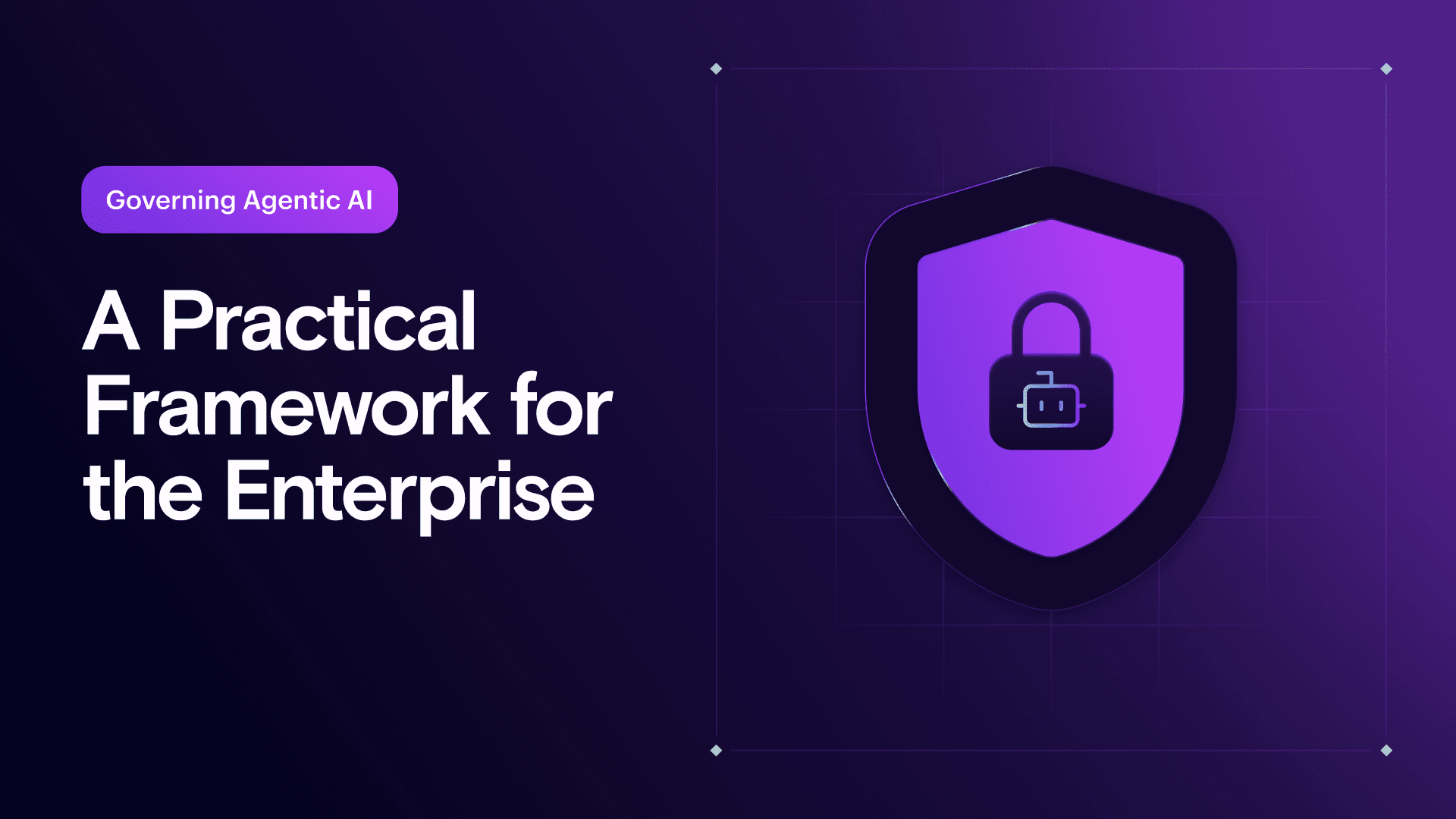
Governing Agentic AI: A Practical Framework for the Enterprise
In my previous piece, "The Agentic AI Governance Blind Spot," I laid out what I believe is one of the most critical...
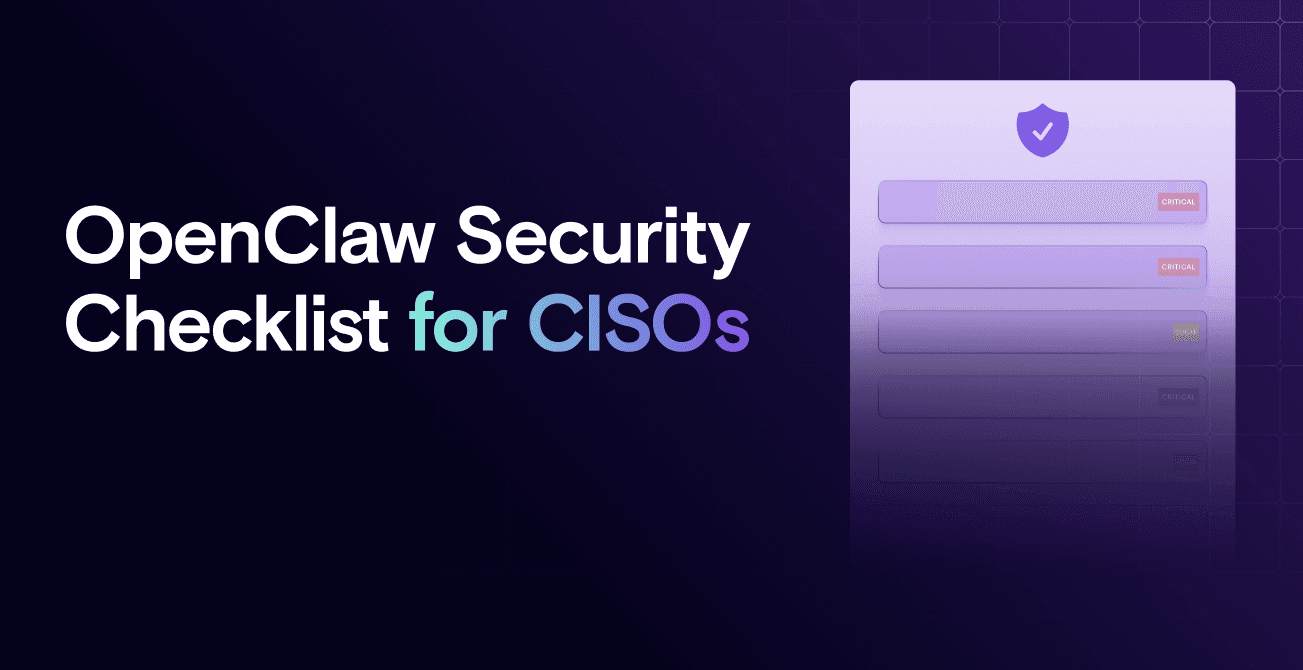
OpenClaw Security Checklist for CISOs: Securing the New Agent Attack Surface
OpenClaw exposes a fundamental misalignment between how traditional enterprise security is designed and how AI...
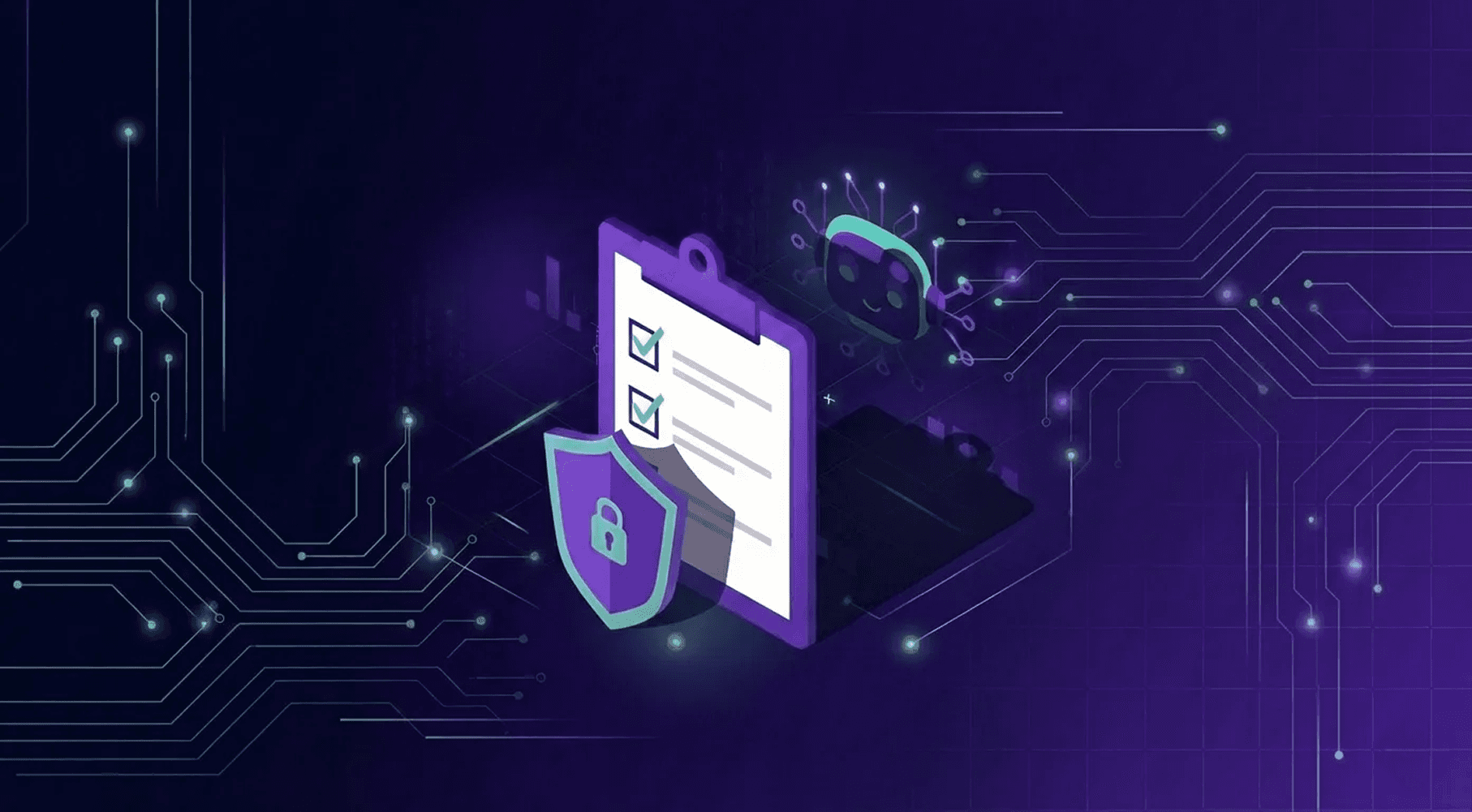
The Agentic AI Governance Blind Spot: Why the Leading Frameworks Are Already Outdated
Approach any security, technology and business leader and they will stress the importance of governance to you....
Secure Your Agents
We’d love to chat with you about how your team can secure and govern AI Agents everywhere.
Get a Demo